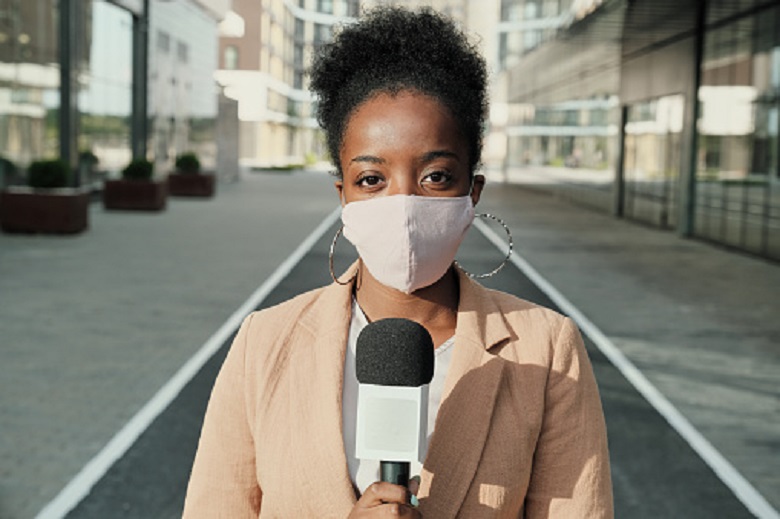Namibia ranked top place in African and twenty-fourth place on the 2021 list of world press freedom index, followed by Ghana, but the situation in Africa remains alarming.
Reporters Without Borders (RSF) sounds the alarm: the practice of journalism, according to the organization the first vaccine against disinformation in a pandemic, has been completely or partially blocked in more than 130 countries.
On Tuesday, the NGO published its world press freedom index. As the top African country, Namibia is in twenty-fourth place and down one place compared to last year, but RSF still considers the situation in the country to be worrying.
Top 10 African countries on this list of 2021 Reporters without borders (RSF)
- Namibia (24th position in the world)
- Ghana (30th position in the world)
- South Africa (32nd position in the world)
- Burkina Faso (37th position in the world)
- Botswana (38th position in the world)
- Senegal (49th position in the world)
- Seychelles (52nd position in the world)
- Madagascar (57th position in the world)
- Niger (59th position in the world)
- Mauritius (61st position in the world)
In total, 73 percent of the 180 countries evaluated, according to RSF, are characterized by “very bad”, “difficult,” or “problematic” situations for journalists: they are colored black, red, or orange on the world press freedom map.
If the situation remains stable, only 12 countries, about 7 percent, know “a good situation”. Last year this was still 8 percent. That white zone on the world press freedom map would not have been so small since 2013, according to RSF.
In addition, the corona pandemic proved an opportunity for states to restrict freedom of the press, Christophe Deloire, the secretary-general of RSF, emphasizes to the French news agency AFP. The pandemic has only exacerbated repression in the most muzzled countries, such as Iran (174th place), Saudi Arabia (170th place), Egypt (166th place), and Syria (173rd place), according to the NGO.
The corona crisis also meant that access to the field and information sources was increasingly closed to journalists, says Deloire. The situation is all the more troubling because journalism is the primary defense against “the viral nature of disinformation”, which is sometimes even fed by the governments themselves, it says.
After all, Brazilian President Jair Bolsonaro (Brazil ranks 111th) and Venezuelan President Nicolas Maduro (Venezuela ranks 148th) have put forward “drugs whose efficacy has never been proven by the medical community,” said RSF.
At the bottom of the ranking for Africa are still Equatorial Guinea (164th place), Libya (165th place), Egypt (166th place), and Eritrea (180th place). Globally, the bottom of the ranking are still China (177th place), Turkmenistan (178th place), North Korea (179th place), and last is Eritrea (180th place).
In the world ranking, Norway retains its first place for the fifth year in a row, followed by Finland, Sweden, and Denmark. While Europe remains the safest region, wrongful attacks and arrests have multiplied, especially in Germany (13th place), France (34th place), Italy (41st place), Poland (64th place), Greece (70th place), Serbia (93rd place) and Bulgaria (112th place).
